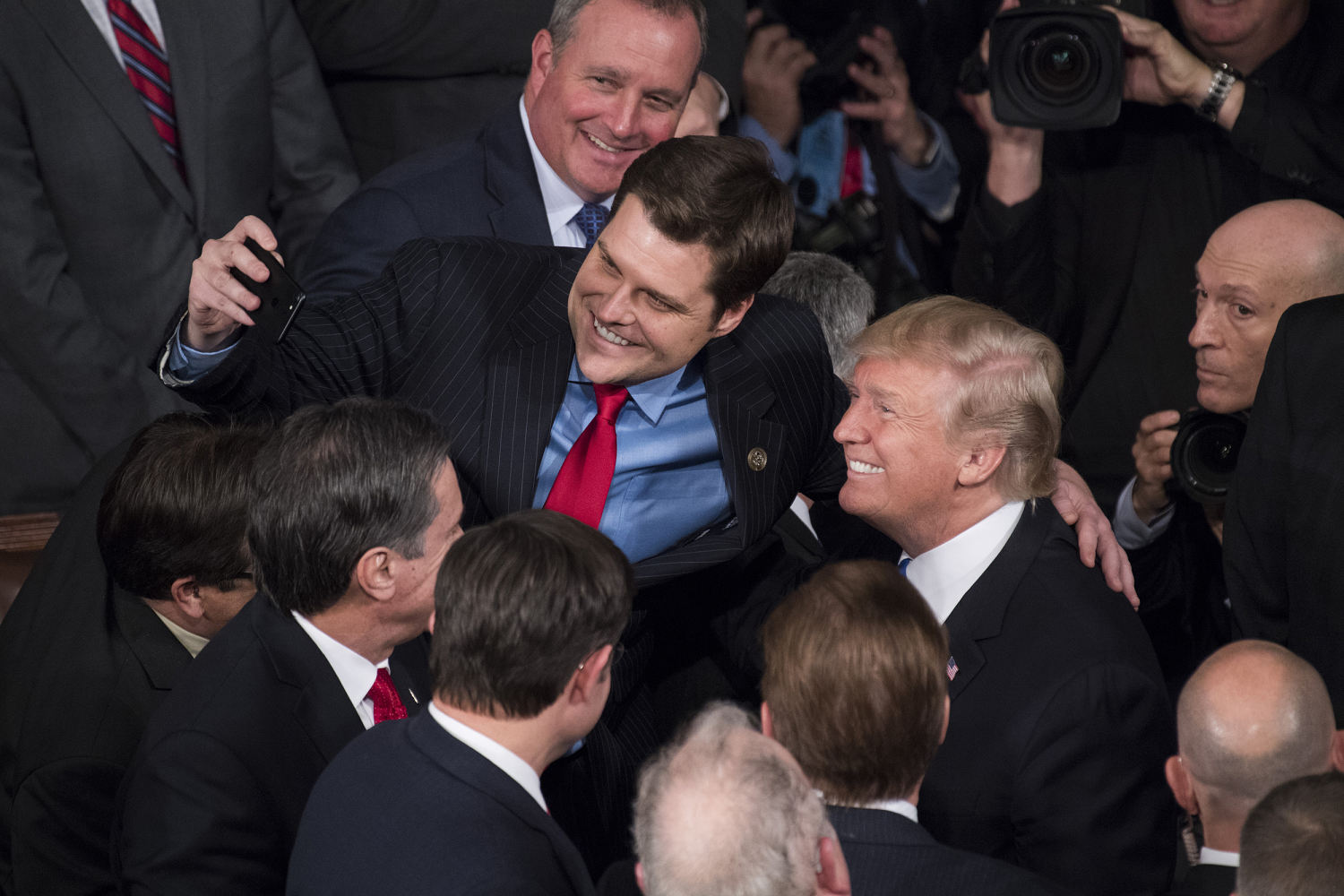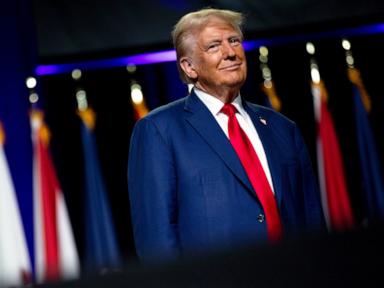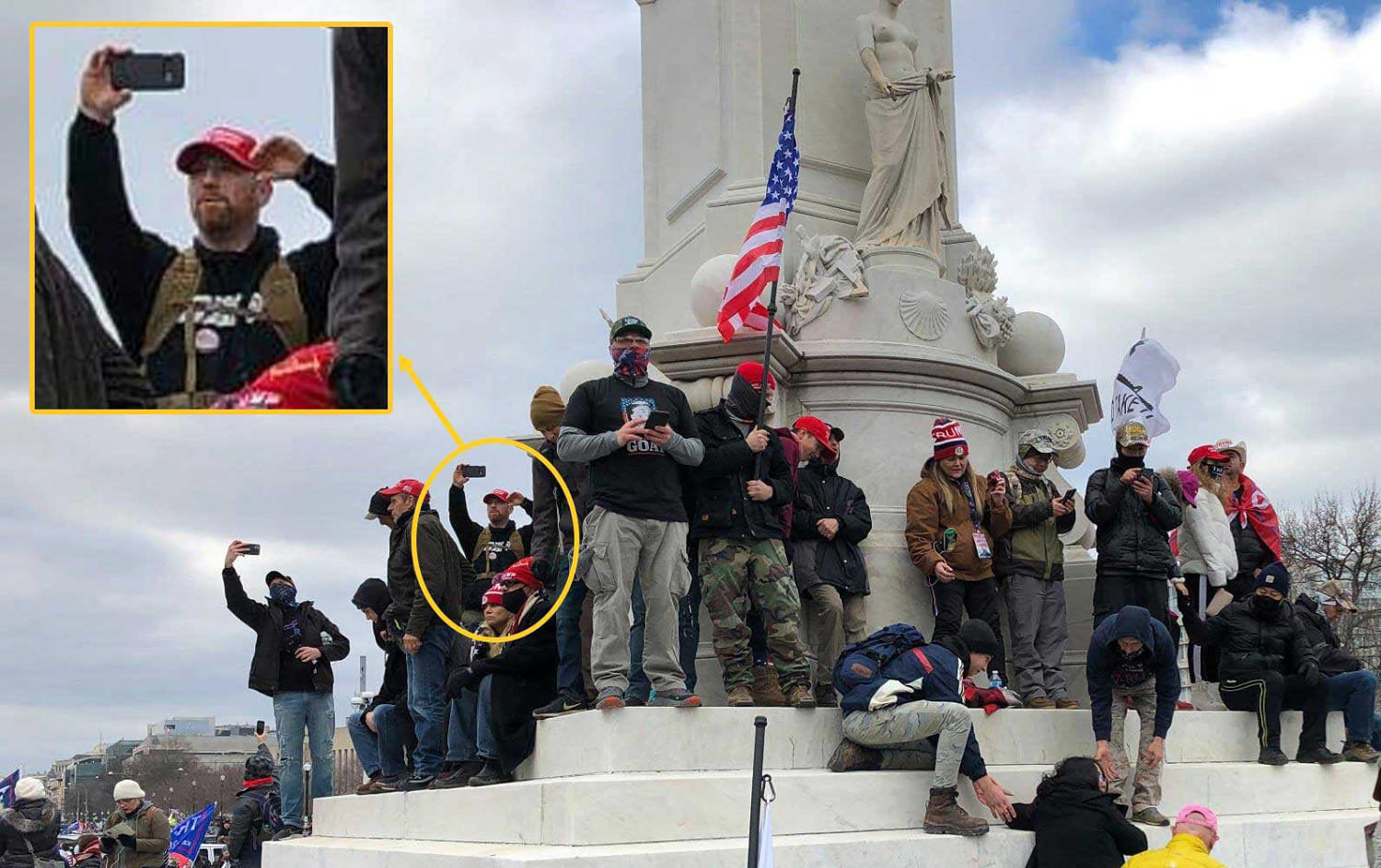End of Trump prosecutions renews scrutiny of DOJ's pace

Special counsel Jack Smith’s move to dismiss Donald Trump’s two federal indictments has sparked finger-pointing from those eager to see the president-elect held to account, with critics airing their frustrations at the Department of Justice and the courts for the anti-climactic end to the case.
The multi-year investigations and prosecutions of Trump that dominated headlines came to a close with a simple two-page order from a judge as prosecutors pointed to Trump’s coming inauguration and DOJ policy that bars the prosecution of sitting presidents.
The low-key end to a case that otherwise threatened jail time for Trump prompted some to criticize the department – resurfacing tension over whether DOJ moved swiftly enough in the case.
“The Justice Dept and the court system failed to uphold the principle that no one is above the law. DOJ by neglecting to promptly investigate the events of Jan 6, and the courts by willfully delaying progress of the case and providing immunity,” Rep. Adam Schiff (D-Calif.), who served on the now-disbanded Jan. 6 committee, wrote on X shortly after Smith filed his motion on Monday.
Rep. Dan Goldman (D-N.Y.), who served as a staffer to the panel before entering Congress, defended Smith’s impartiality but also criticized the pace of prosecutors and the courts.
“While this outcome might have been avoided if Attorney General Garland had initiated the investigations sooner or if the Supreme Court had not excessively delayed its ruling, the net result of today’s actions is that Donald Trump will escape accountability for violations of law alleged in great detail by two grand juries – placing Trump squarely above the law,” he said in a statement.
DOJ was always up against a clock in investigating Trump.
Trump had established a reputation for seeking delay in court cases, and his intention to seek reelection raised the prospect of activity bumping into an election season Trump could win.
“This risk was entirely foreseeable. It was foreseeable all the way back in 2021,” said Ankush Khardori, a former federal prosecutor who expressed concern over the pace of the case at various turns.
“There are several different causes of the delay or the failure to reach a conclusion, at least in the 2020 election case, one of them is the unforgivable delay in seriously investigating Trump. Then you have the Republicans who gave Trump a pass in the second impeachment. Had they voted to convict him, he would have been disqualified from running again… . And the Republican appointees to the Supreme Court played an essential role here, basically making it impossible to hold a trial this year.”
Many of the delays predated Smith’s appointment and occurred in both cases he would later oversee: Trump’s retention of classified documents at his Florida home and the election interference case.
In the documents case, officials spent months pushing to secure their return before ultimately searching Trump’s home more than a year after he left office.
And in the Jan. 6 case, the Justice Department was grappling with identifying and charging more than 1,000 rioters while also staging their own internal deliberations over how to proceed regarding Trump.
It was Trump’s own reelection announcement that spurred Smith’s appointment, a move that does seem to have accelerated each case. He brought the classified documents case within seven months of taking the job, while the Jan. 6 case came about two months later.
In asking to dismiss the case without prejudice, Smith said the move was not a reflection on “the gravity of the crimes charged, the strength of the Government’s proof, or the merits of the prosecution, which the Government stands fully behind.”
The end of his cases also ignites a provision in special counsel regulations that requires him to draft a report summarizing his work — something Garland can choose to publicly release.
Still, it's a dissatisfying end to those who see the case as a reflection on the strength of the democratic system.
“As the indictment is charged, you had the former president committing a series of felonies and crimes against the United States, and nothing ever came of it. How do you square that with the way that Americans think of themselves and their democracy,” said Jeff Robbins, an attorney now in private practice who has served as both a federal prosecutor and a Senate investigative counsel.
“Both the process and the result were disgraceful and probably do irreparable harm to our democracy.”
In the Jan. 6 case, the Justice Department was reported to have quietly investigated some of Trump’s closest aides, but that didn’t accelerate until the summer after the attack.
And that same summer, the House announced it would form its own committee to review the attack, putting more public pressure on the Justice Department as its own investigative advances sparked headlines.
Outwardly, the two approaches seemed to be a study in contrasts.
The Justice Department was still largely focused on the rioters, seemingly building a case from the bottom. On the one-year anniversary of the attack, Garland stressed the importance of “build[ing] investigations by laying a foundation.”
“Investigating the more overt crimes generates linkages to less overt ones,” he said.
The Jan. 6 committee, while still casting a wide net, primarily focused on those close to Trump, his White House and campaign, and who would have insight into high-level discussions.
Khardori said DOJ was right to pursue the rioters but needed to have a parallel investigation focused on key players in Trump world.
“There was no guarantee that this sort of bottom up notion would ever get to Trump, and there was time pressure, right? That was a big problem, too,” Khardori said.
“So the idea that they could just sit around and see how long it takes to work their way from the Q Anon Shaman to Trump, when there was no guarantee that there would ever be a connection … was absurd. And I have to say, now we know it's absurd, because Jack Smith and his team's case does not rely on any bottom up investigation. It relies essentially on the Jan. 6 [committee] investigation, which was a straight to the top investigation.”
The two investigative bodies at times feuded, with the congressional panel initially resisting requests by DOJ to share some evidence and transcripts.
By July of 2022 the two had reached a deal, though Trump’s Jan. 6 indictment would not be brought for another year as the Justice Department presented its case to a D.C. grand jury.
The Justice Department does have its defenders, particularly when it comes to pacing, and many observers have also criticized the Supreme Court’s handling of Trump’s immunity challenge.
The high court initially declined to take the case earlier in the process, determining months later that former presidents retain broad immunity for core official actions they take while in the White House. The ruling leaves unanswered numerous questions over what presidential crimes can ever be prosecuted.
It was a key victory for Trump, both on the merits and on the timeline – the various appeals and review ate up about seven months.
“This lingering criticism of DOJ ignores public facts and, more importantly, the elephant in the room: that the conservative majority on the Supreme Court was always going to have Trump’s back, no matter what DOJ did. This Court seemed hellbent on protecting Trump at whatever cost and that’s what they did,” Anthony Coley, former head of DOJ public affairs, told The Hill in a statement.
“To help correct the record, my hope now is that Special Counsel Smith, as part of his final report, will include a detailed timeline of DOJ efforts to try to hold Trump accountable from the beginning of the administration.”
And while congressional Republicans and other GOP figures rejoiced Monday, they along with Trump were also pinpointed.
“Let's face it, the blame rests principally with the person who committed what grand juries concluded were probably crimes. That's the first place where attention should go,” Robbins said, referencing Trump.
“The second place where attention should go is people who defended that conduct. And then, right up there with that second bucket is the Supreme Court, which by a majority said, ‘Yeah, you know what? He can do whatever he wants, and he can't be prosecuted,’” he added.
“And frankly, Merrick Garland and the seeming lack of urgency that he and his team displayed, while they merit attention, that's not where the principal blame ought to go.”
-

DOJ and FBI officials reach out to lawyers as potential Trump revenge prosecutions loom
Politics - NBC News - November 17 -
The Justice Department policy that could end some Trump prosecutions
Top stories - CBS News - November 7 -
Gaetz misconduct probes under renewed scrutiny after attorney general nod
Top stories - CBS News - November 13 -

Trump's federal prosecution ends as appeals court drops him from classified docs case
Top stories - ABC News - 15 hours ago -

Days before the election, DOJ continues to prosecute new Jan. 6 cases
Politics - NBC News - November 3 -
Can the renewables boom withstand Trump?
World - Financial Times - November 7 -

House COVID panel says Andrew Cuomo lied to Congress, calls for DOJ to prosecute
Politics - The Hill - October 31 -
Prosecution ends in case against 2 remaining defendants in Young Thug trial
Entertainment - ABC News - November 19 -
Trump staff picks come under scrutiny
Top stories - CBS News - November 17
More from The Hill
-

Massive organized retail theft operation in Queens busted
Politics - The Hill - 17 minutes ago -

Trump should give Biden permission to pardon Hunter
Politics - The Hill - 39 minutes ago -

Harris to supporters: 'Don't you ever let anybody take your power from you'
Politics - The Hill - 42 minutes ago -

The race is on to save Georgian democracy
Politics - The Hill - 1 hour ago -

Harris campaign is 'self-congratulatory': DNC committee member
Politics - The Hill - 1 hour ago